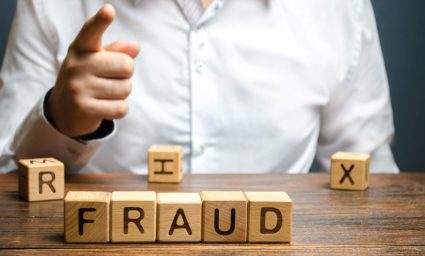 Facing financial hardships can often lead individuals to feel a profound sense of stress and urgency as they search for effective solutions to improve their circumstances. The ongoing pressure to manage everyday expenses can make offers that seem generous and beneficial appear overwhelmingly attractive and difficult to reject. While we consistently caution against high-interest payday loans and excessive borrowing on credit, it’s vital to maintain a vigilant stance even when presented with seemingly legitimate offers of financial assistance. More often than not, money that appears available for the taking is, in reality, a cleverly laid trap set by unscrupulous scammers who seek to exploit your current vulnerability.
Facing financial hardships can often lead individuals to feel a profound sense of stress and urgency as they search for effective solutions to improve their circumstances. The ongoing pressure to manage everyday expenses can make offers that seem generous and beneficial appear overwhelmingly attractive and difficult to reject. While we consistently caution against high-interest payday loans and excessive borrowing on credit, it’s vital to maintain a vigilant stance even when presented with seemingly legitimate offers of financial assistance. More often than not, money that appears available for the taking is, in reality, a cleverly laid trap set by unscrupulous scammers who seek to exploit your current vulnerability.
Today, an alarming number of scams are strategically designed to prey on individuals’ financial vulnerabilities, making it essential for everyone to remain alert and informed. A key guideline in identifying potential scams is to adhere to this principle: if an offer seems too good to be true, it likely is. In this detailed guide, we will explore various scams specifically targeting those who are grappling with financial difficulties, providing you with the necessary knowledge to differentiate between genuine opportunities and deceptive schemes that could lead to serious financial consequences.
Understand Your Rights for Safeguarding Tax Refund Claims
There are legitimate channels available for you to claim tax refunds related to various expenses incurred during work, such as tools, uniforms, and travel mileage. However, these processes typically require engaging with a tax rebate services company, which necessitates granting them access to your personal tax records. It’s crucial to recognize that no government agency, including HMRC, can accurately determine your entitled refund without your active involvement or the consultation of a qualified accountant. Therefore, exercise extreme caution when confronted with unsolicited messages claiming that “HMRC has a tax refund of £261 waiting for you.” Such communications often present seemingly realistic figures, cleverly steering clear of the outrageous claims associated with other notorious scams, like the infamous Nigerian Prince schemes. Instead, these messages may direct you to websites where you could unwittingly provide sensitive information, resulting in identity theft or significant financial losses.
To verify whether such communications are legitimate or fraudulent, meticulously examine the sender’s details. If you receive a text message, take the time to research the originating phone number for authenticity. It is advisable to refrain from responding to such messages and reach out to HMRC directly for confirmation. Keep in mind that HMRC typically communicates through letters or emails sent to your registered address rather than unsolicited text messages. Moreover, you now have the option to access your personal online tax account, allowing you to view notifications directly from HMRC. If you receive an email, scrutinize the sender’s address closely; it should originate from an official HMRC domain. Always avoid clicking on any links included in suspicious messages.
How to Recognize and Avoid the National Insurance Number Scam
Recent reports, including those from the Daily Express, suggest that numerous individuals have fallen victim to the National Insurance scam, which primarily operates through phone calls. This tactic is distinct from many others as scammers may contact you via both landlines and mobile devices. The scam usually begins with a distressing message indicating that your national insurance number has been compromised. This alarming approach is designed to instill a sense of urgency, prompting you to press a button to speak with someone who can assist you. However, taking this action often results in incurring premium rates for the call while the scammers gather your personal information.
To determine whether such a call is a scam, remember that legitimate organizations will never request that you press a button to continue the conversation. If you find yourself uncertain, it’s best to hang up and quickly conduct an online search for the number. A brief investigation can typically reveal whether the number is associated with known scams, allowing you to safeguard your personal information effectively.
Identifying the DPD or UPS Delivery Scam to Protect Yourself
Another common scam involves receiving unsolicited texts or emails claiming that a parcel is awaiting your action. These messages often urge you to click on a link to provide personal information, which is a significant red flag indicating potential fraud. To protect yourself, carefully examine the source of the email. Scammers frequently utilize distorted or unusual email addresses that do not align with legitimate businesses. Additionally, verify any recent orders you’ve placed on platforms like Amazon or eBay; these platforms usually offer comprehensive tracking information for your packages.
It’s also essential to understand that while carriers like DHL may impose duties on international orders, they will always provide you with specific details regarding your shipment and its origin. If you receive vague messages about package deliveries without having placed prior orders, it is wise to exercise extreme caution. Staying informed about personal finance scams is critical in shielding yourself from becoming a victim of such schemes. If financial pressures make these scams seem appealing, consider reaching out to us; we can assist you with our debt consolidation loans for bad credit. We are dedicated to helping you navigate your financial challenges securely and effectively.
The Article Finance Scams to Watch Out For Was Found On https://limitsofstrategy.com

